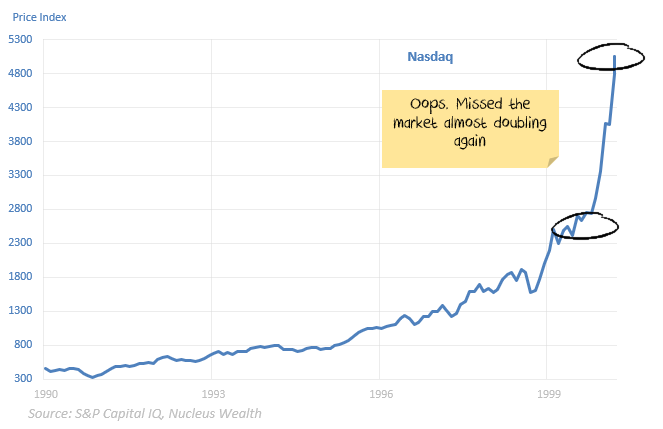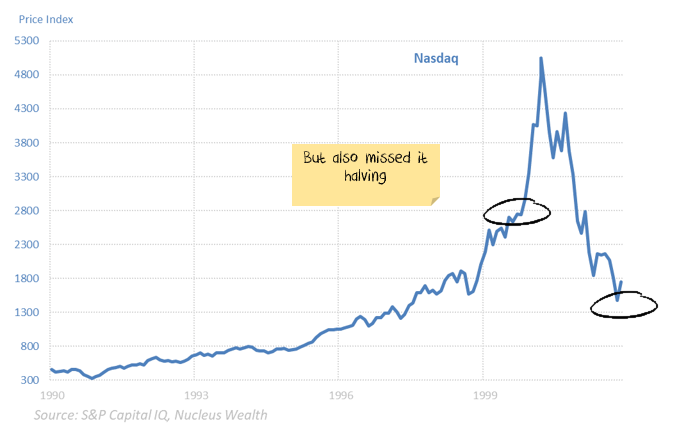What will pop the virus bubble?
An ounce of prevention is worth a pound of cure. Coronavirus has shown this to be accurate, both in managing the virus and in managing investment portfolios over the year to 30 June. Early action in clearing out of equities meant that your investment portfolio would have a cracking year, even if you didn't buy back in at the bottom.
Bubbling along
The economic and virus progress has been largely as we expected so we remain conservatively positioned. Since the crash we found value in commodities. First oil, then iron ore, and now gold miners. We remain very wary of banks. However, the economy and the stock markets have disconnected. Stock markets are at valuations that discount no risk. Indeed, they are now the risk.
And to be even clearer, it “ain’t just the virus”. The timing of the pandemic is just as important. We were already watching for what could bring an end to one of the longest economic expansions ever. Debt levels had increased dramatically, regulations around lending were lax, tax cuts had extended the boom, and so the economy was already vulnerable. It is the combination of the virus plus an already vulnerable economy that creates the risk.
The tech boom test
It is October 1999. The NASDAQ index (measuring a group of US tech stocks) is at 2,600 on close to record valuations. You decide it is a bubble, and make the decision to sell most of your stocks and wait for sanity to return. The bubble pops in six months and is below your exit price within a year. Other investors have halved their capital within three years. Your assessment is vindicated. However, before it fell to 1,250 the NASDAQ first doubled.

Were you right or wrong to sell? An investor will say you were right, you assessed the situation, made a call, and were eventually vindicated. You can’t beat yourself up when markets become irrational.

A trader would say that you made the wrong decision. You could have doubled your money if you held on for longer. There was plenty of time to sell.

Process and repeatability
We side with the investors. For us, repeatable returns are the goal. Our current positioning reflects the likelihood that markets are in a bubble, but acknowledges there is a possibility “this time is different”.
The early actions of central banks and governments have dodged an economic catastrophe but the threat of the virus impact remains extraordinary.
There is an alternative possibility: that markets are now entirely dependent on central bank support, so economics and fundamentals no longer matter. We have a check-list of a dozen decisions that governments and central banks can make that will eventually suspend capitalism.
A few of the items have already been checked off the list. The more that get implemented, the closer we get to a genuinely new paradigm. But, we do not believe this to be a likely outcome. The steps taken must become increasingly radical: effectively central banks and governments bailing out and propping up most failing businesses, turning the world’s capital markets into a herd of state-owned entities that will ‘kill the village in order to save it’.
What will pop the bubble?
All bubbles are built on a grain of truth.
The truth here is that central banks and governments “have your back” and will buy anything and everything to keep the stock market high.
It is likely that central banks will continue to bail out corporate debt markets where they can. But already we are seeing cracks with Hertz and several airlines filing for bankruptcy. Wirecard, one of the largest companies in Europe has collapsed, under a likely massive fraud.
And there will be more. Economic downturns always expose scams.
Keep in mind also that small and medium businesses make up 50-70% of most economies. They don’t have traded debt that central banks can buy. There is significant risk in this area as virus waves shut down economic segments and government support is withdrawn.
In a way, small businesses are like the virus without testing. We suspect a lot of them are insolvent, but because insolvency laws are suspended we really don't know how bad the damage will be. If unemployment is anything to go by (spoiler: it is), then it will be very bad.
The irrationality of the earnings is another possible pin. A Joe Biden win in the US election is another, with the spectre of higher taxes and wages damaging profits. It may be something altogether unpredictable.
How much bigger can this bubble get?
Bubbles rely on new money to keep them inflated or growing. So, as long as new money is flowing, the stock market bubble can keep growing. There are four primary sources bubbles rely on for new money:
- New investors: people that were previously not invested entering the market help bid prices higher. This happened at record levels over the last four months. It may continue, but our expectation is that there are not many left.
- Increased gearing: investors using debt to increase their investment. This has not been occurring except in China. So there is the potential for this to extend the boom.
- Derivatives: increasing use of derivatives is similar to increased gearing. There has been a dramatic increase in derivative trading. But, the pricing of volatility is still elevated. If volatility falls it is possible we see more derivatives. But most of the upward move has probably already occurred.
- Investors switching asset classes: sometimes the new money is simply investors switching out of one asset class not in a bubble and into the asset class having a bubble. There are three parts to this:
- Hedge funds (in aggregate) are a lot closer to their maximum equity exposure than their minimum. So not much more buying to come there.
- Fund managers (in aggregate) talk a good game about overvaluation but are actually relatively fully invested and so don’t have a lot of scope to buy more equities.
- Central banks are buying assets trying to “chase” investors out of bonds and into equities. This issue is that so much government debt is being issued at the moment (much more than at the start of the crisis) that central banks are going to have to run hard just to keep up with government and corporate bond issuance. It is possible central banks do more. They are the bull’s best hope for an extended bubble.
The 2001 US tech boom took about two years to play out, but was a different type of bubble. The China 2015 Bubble took four months before economic reality sunk in. We suspect markets are on a trajectory closer to China’s 2015 bubble than the tech boom.
Wrap up
Our objective is to hang with the market on the way up and then outperform by protecting capital when it falls. In cricket/baseball terms, our superannuation and investment portfolios are trying to hit singles (consistently) and not get out. We are not trying to hit the ball out of the park every innings, where you run the risk of succeeding at first but striking out for a duck in the next (if you’ll pardon the mixed metaphor).
Ironically, one of the key benefits of this approach is that there will be times (such as this year) that the strategy hits the ball out of the park - both our growth and income funds finished at the top of Morningstar's charts.
The question for all investors at this point is whether now is the time to follow a similar cautious strategy, or whether now is really the time to be throwing caution to the wind.
Putting the power back in your hands
Nucleus Wealth was born from the idea that everyday people should have the transparency, customisation and access to quality superannuation and investment management that is typically reserved for high net worth and sophisticated investors. Learn more here.

